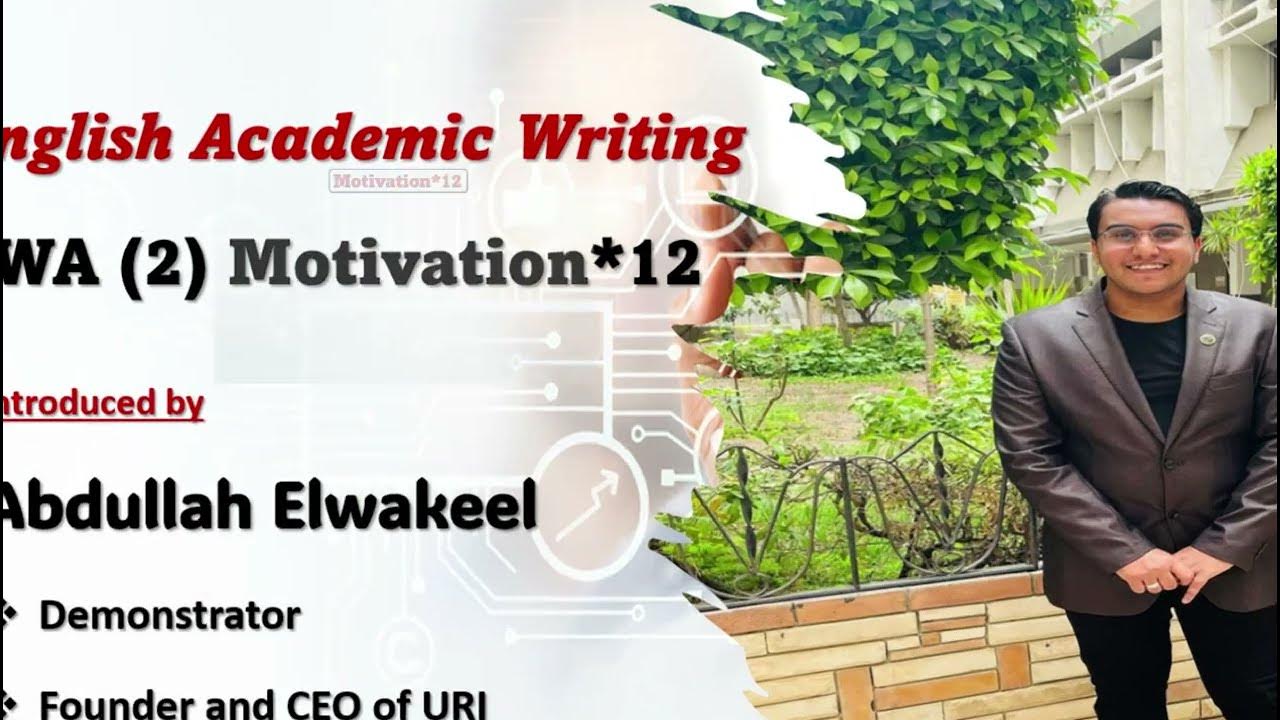Writing Process Animation
Summary
TLDRJonathan shares his blog writing process, emphasizing that writing is a skill that can be improved with practice. He outlines strategies for planning, researching, and drafting, highlighting the importance of setting goals, reducing distractions, and revising. The video provides practical tips for improving writing in any context, from academic assignments to professional communications.
Takeaways
- 📝 Writing is a skill that can be improved with time and practice.
- 🎯 Good writers use strategies to achieve success, not just natural talent.
- 📅 Planning is crucial for high-quality writing; it involves making a timeline, selecting a topic, and creating an outline.
- 👕 Getting comfortable and reducing distractions are essential steps before starting to write.
- 📈 Setting short-term, concrete, and challenging goals for each stage of the writing process is important for improvement.
- 🤔 Brainstorming helps in selecting a topic that is both interesting and relevant to the course or task at hand.
- 📚 Research should be thorough and use credible sources; Wikipedia is not sufficient on its own.
- 📝 Writing a draft comes after researching and outlining, not before; it's a process of organizing thoughts and information.
- 🔍 Revising is more than just proofreading; it involves looking at the whole structure, sections, and individual sentences.
- 🔄 Regularly monitoring progress and adjusting goals and timelines is key to staying on track and improving.
- 👥 Seeking feedback from others and self-evaluating against a rubric can significantly enhance the quality of the final piece.
Q & A
What is the most important takeaway from the video about writing?
-The key message is that writing is a skill that can be improved through practice, patience, and persistence. Strategies can help, but effort is required to become a better writer.
Why is planning important before starting to write?
-Planning helps structure your thoughts and improves the overall quality of your writing. It is often more effective than relying on multiple revisions alone.
What are the main stages of writing a blog according to the video?
-The main stages are planning, research, writing, and revision. Breaking the task into these stages makes the process more manageable and ensures higher quality.
How does setting goals improve the writing process?
-Setting clear, concrete, and challenging goals gives you a sense of direction and helps you track progress. It keeps you motivated and focused on improvement.
Why does the speaker recommend writing down your progress?
-Writing down progress helps maintain accountability and allows you to make more accurate time estimates in the future. It also helps track distractions and work conditions.
Why should you avoid writing the introduction and conclusion first?
-The speaker recommends writing the body of the blog first, as it allows you to better understand the flow and content. Writing the introduction and conclusion last ensures they align with the rest of the post.
What should you focus on during the research phase?
-During research, focus on gathering credible, high-quality sources. Make notes in your outline and continually refine your topic based on the information you find.
Why is revision more than just proofreading?
-Revision involves looking at the overall structure, the order of sections, and sentence flow. Proofreading is the final step, focusing only on fixing minor errors.
How can you ensure that your sources are credible?
-Check if the content has been reviewed by an editor or if the author is a professional respected in their field. Avoid over-reliance on sites like Wikipedia for serious research.
What is a good practice after completing your first draft?
-A good practice is to step away from your draft and come back to it with fresh eyes. This helps you revise more objectively and improve the overall quality.
Outlines

Cette section est réservée aux utilisateurs payants. Améliorez votre compte pour accéder à cette section.
Améliorer maintenantMindmap

Cette section est réservée aux utilisateurs payants. Améliorez votre compte pour accéder à cette section.
Améliorer maintenantKeywords

Cette section est réservée aux utilisateurs payants. Améliorez votre compte pour accéder à cette section.
Améliorer maintenantHighlights

Cette section est réservée aux utilisateurs payants. Améliorez votre compte pour accéder à cette section.
Améliorer maintenantTranscripts

Cette section est réservée aux utilisateurs payants. Améliorez votre compte pour accéder à cette section.
Améliorer maintenant5.0 / 5 (0 votes)






